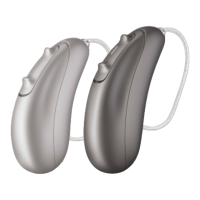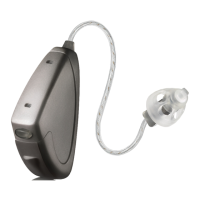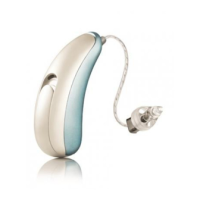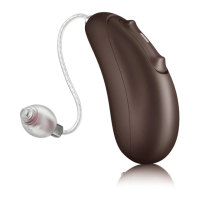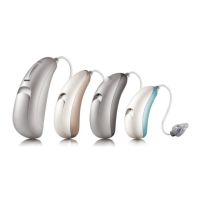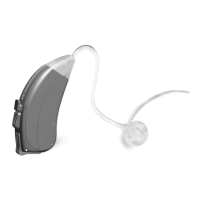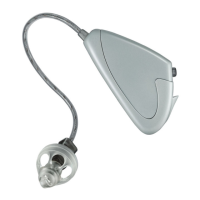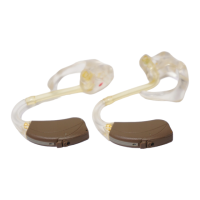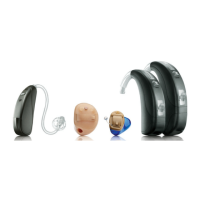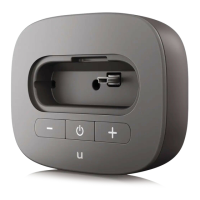54 55
The hearing care professional may decide that a
referral is not appropriate or in the best interest
of the patient when the following applies:
• When there is sucient evidence that
the condition has been fully investigated
by a medical specialist and any possible
treatment has been provided;
• The condition has not worsened or
changed signicantly since the previous
investigation and / or treatment.
If the patient has given their informed and
competent decision not to accept advice to seek
a medical opinion, it is permissible to proceed
to recommend appropriate hearing aid systems
subject to the following considerations:
• The recommendation will not have any
adverse eects on the patient’s health or
general well being;
• The records conrm that all necessary
considerations about the patient’s best
interests have been made.
If legally required, the patient has signed a
disclaimer to conrm that the referral advice
has not been accepted and that it is an
informed decision.
Clinical benet:
Hearing aid: Improvement of speech
understanding.
Tinnitus feature: tinnitus feature provides
supplementary noise stimulation which can
help defocus the user’s attention from their
tinnitus.
Side eects:
Physiological side-eects of hearing aids like
tinnitus, dizziness, wax build up, too much
pressure, sweating or moisture, blisters, itching
and/or rashes, plugged or fullness and their
consequences like headache and/ or ear pain,
may be resolved or reduced by your hearing
care professional.
Conventional hearing aids have the potential
to expose patients to higher levels of sound
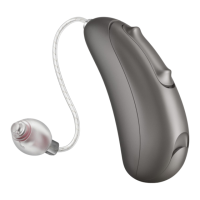
